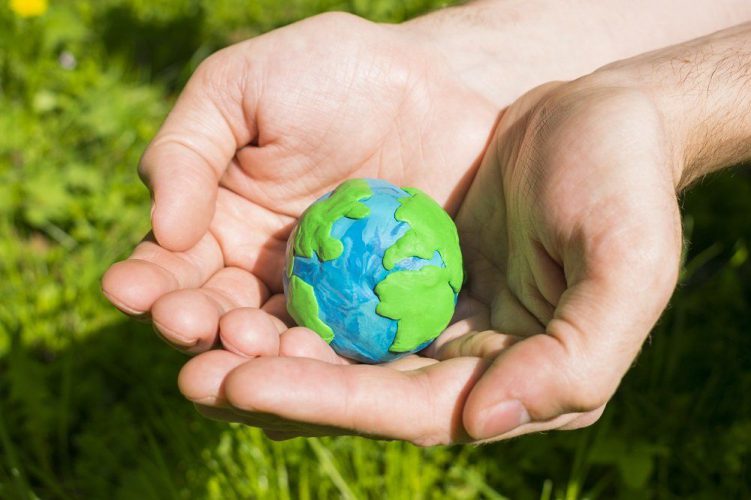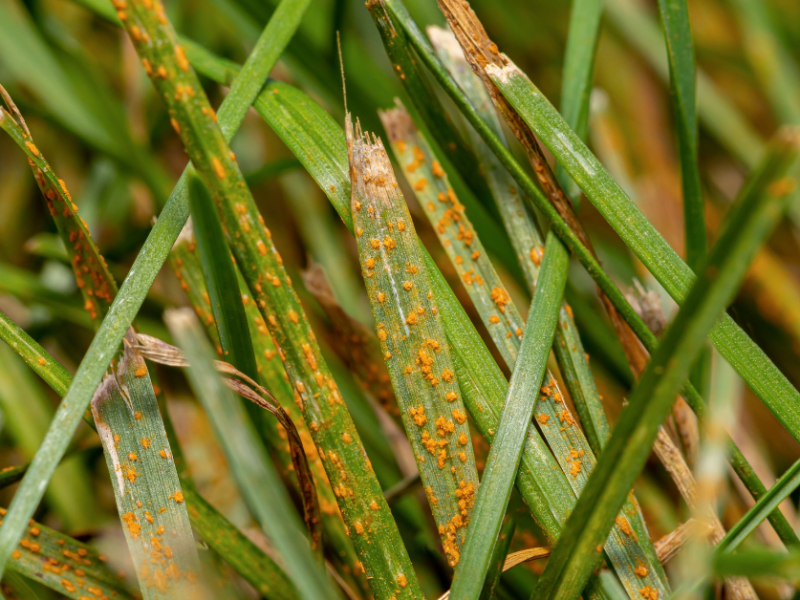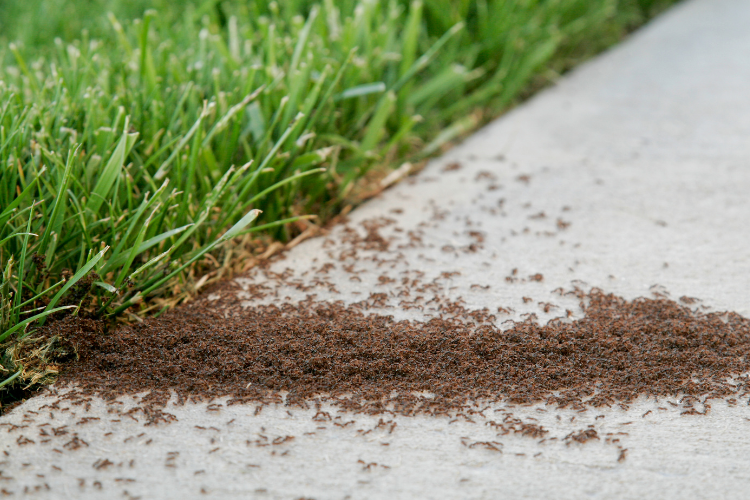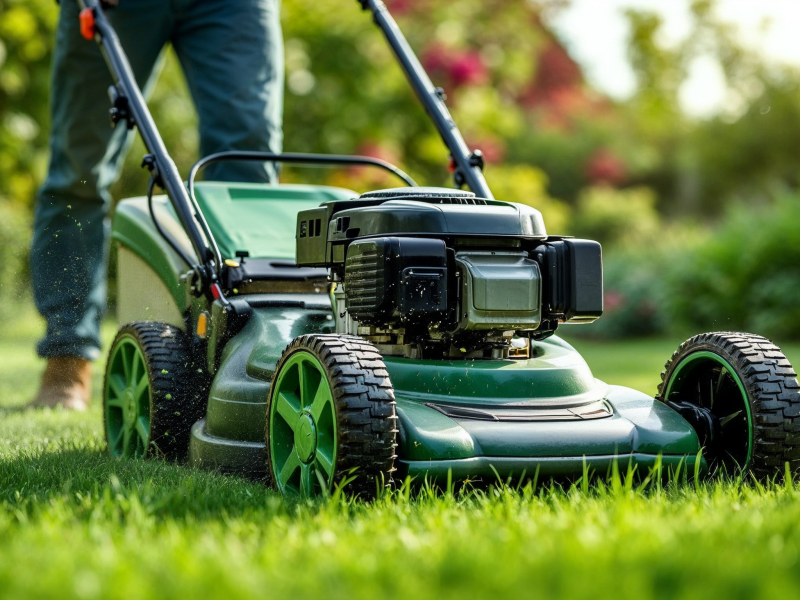It’s more important than ever to make changes to better care for the environment. With scientific reports showing us how close we are to environmental catastrophe, we as individuals can make a difference. There are some simple steps you can do in your garden to help the environment. Keeping your lawn well cared for can go a long way. Keep reading to learn more…
Lawn Care
Part 1 of this blog post series explained how caring for and maintaining a healthy lawn can be extremely beneficial in helping the environment (read it here!). Lawns currently process and use 5% of the world’s CO2, so a healthy lawn goes a long way! It takes little effort to keep your lawn healthy: with Greensleeves, you get five treatments a year with no work on your part! Read more about lawn renovation on our blog.
As well as lawn care, there are lots of other steps you can take to help the environment in the garden.
In the Garden
Your garden is the perfect place to help the environment as it’s where you’re closest to it! Try some of our tips below to help the environment in your garden.
Waterbutts
Waterbutts catch rainwater and, with a handy tap at the base, allow you to use this water rather than water from a hose or indoors tap. According to the RHS, 3% of the nation’s total water usage comes from outdoor use (and this can rise to as high as 70% in the summer!). If every household in the UK had a waterbutt, we could save a significant amount of water every year. If that’s not a reason to install a waterbutt, we don’t know what is!
You can’t use waterbutt water for everything, as it hasn’t been purified like the water you drink, but it’s ideal for lots of garden and household jobs. This includes:
- Watering indoor & outdoor plants – Rain water is actually better for plants than normal water as it doesn’t have the same levels of chlorine.
- Washing the car
- Watering your lawn – if there’s a hosepipe ban, water stored in your waterbutt is the ideal way to keep your lawn looking green!
Grow Vegetables
Growing your own vegetables is an extremely effective way to be more environmentally friendly. A very high number of the vegetables we eat are imported from abroad. This is often because of the demand for out-of-season vegetables, but also for the generally high demand which our British farmers can’t always meet.
Even if you only buy British vegetables, these have to go through a long process to get from the field to your kitchen. Tractors sow the seeds, and water & treat the vegetables; combine harvesters are used; factory processing, such as washing; packaging; transporting around the UK and, finally, being bought in the shops. All these things come together to make your vegetables less ‘˜green’ than you might think.
It is, of course, still much better to buy seasonal British vegetables than imported, but even better is growing your own. Different vegetables can be planted and harvested throughout the year and lots of them can be stored so you can enjoy them out of season too. From canning or turning into jam, through to simply wrapping them and putting them in the garage, you can reap the benefits of growing your own veg all year round.
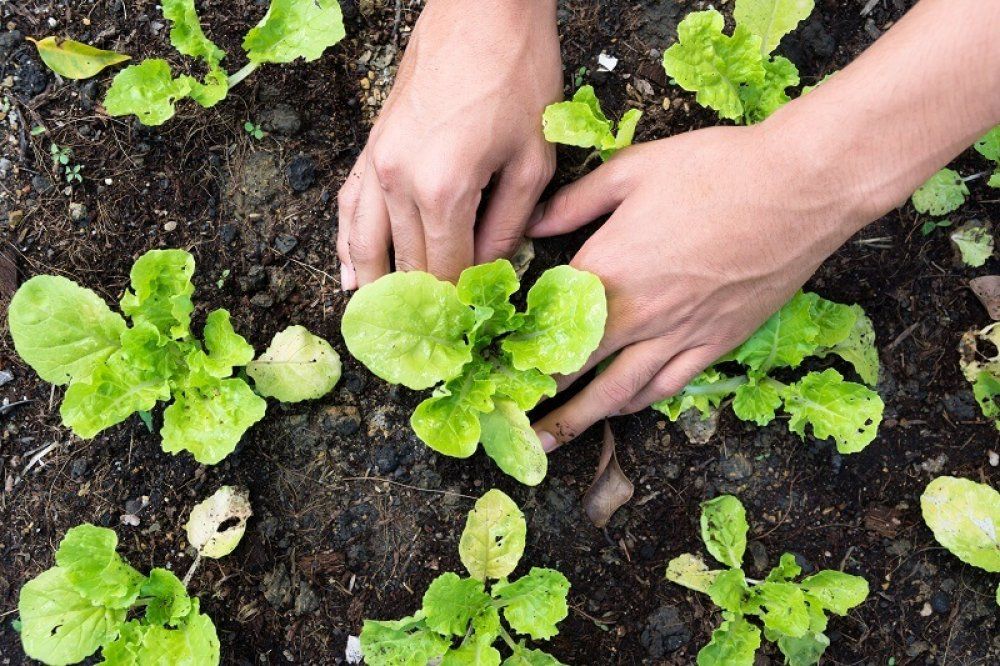
Plant Trees & Shrubs
Another great way to help the environment is to plant a variety of trees and shrubs around your garden. You might not have space for a huge oak tree, but there are so many different species of trees and shrubs that you’ll be able to find some that suit the size of your garden.
Trees and shrubs, as well as other plants, go through a process of photosynthesis in order to produce the food they need to grow and survive. In this process, the plant takes in carbon dioxide from around it and converts it into oxygen. Plants are the perfect way to help reduce the ever increasing problem of CO2 in our atmosphere.
Having just a few trees or shrubs in your garden can make a difference to the big picture. The more plants we all have, the better for the environment it is.
Choose Native Species
An extra tip when planting new trees and shrubs is to choose native species. Native species of plants, trees and shrubs will grow much better in your garden and will require less dedicated care such as the use of pesticides, fungicides and other chemicals. It not only makes your job easier, but makes them a more environmentally friendly choice. It’s also less likely that your plant will have been imported from abroad, cutting down on the CO2 emissions it took to create your garden.
Encourage Bees
While bees don’t directly impact the CO2 levels in our atmosphere, they contribute to the general health of the environment. Bees are essential for the fertilisation of our food, flowers and other plants. Without them – or with less of them – plants wouldn’t be able to survive and reproduce. We would have less plants, which would be very bad for the environment.
To encourage bees in your garden, you can grow plants such as lavender and have plenty of flowers and flowering plants.

Compost
Creating a compost bin is the most sustainable and environmentally friendly way to dispose of old food waste.
All sorts of things can be composted: vegetable waste, eggshells, tea leaves (most tea bag material cannot be recycled, but the leaves from loose leaf tea can!), coffee grounds, and fruit peel and cores. If it is natural and will decompose, then it can be composted. Different things take different amounts of time to decompose into useable material.
Leaves can take different amounts of time to break down. For example, ash, poplar and willow leaves take around a year, while beach, oak and birch could take 2 years or longer! A good idea with leaves is to keep them separate from your normal compost. You can put them in bin bags or a separate compost bin, but ensure that air can reach them as this is essential for decomposition. A compost made from 100% leaves is called a leaf mold and is extremely high in nutrients that will benefit your plants!
Help the Environment in Your Garden
If you have a garden – no matter how big or small – you can use it to help the environment. If you don’t have a garden, you can still grow plants inside or in hanging baskets!

